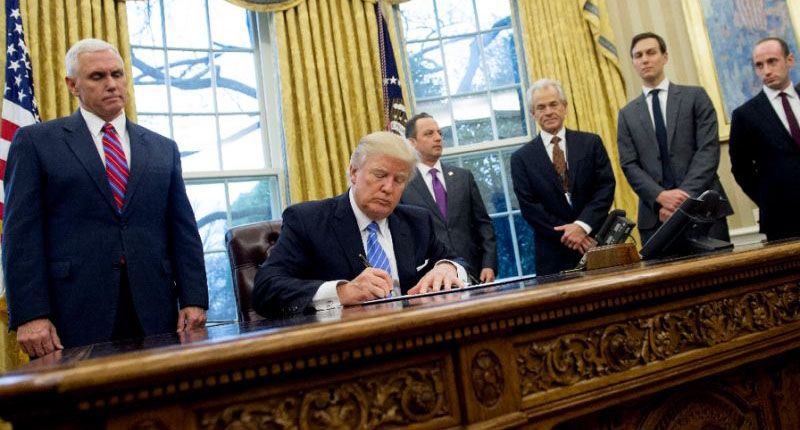Republicans so far have given little indication they're willing to doggedly pursue an investigation of President Donald Trump's ties to Russia, and their reaction to FBI director James Comey's firing has been relatively muted.
Statements by Senate Republicans on Comey's ouster has run the gamut from angry to enthusiastic, but Majority Leader Mitch McConnell put a lid on Democratic calls for a special prosecutor.
The simplest explanation for GOP disinterest in Trump's possible connections to Russia and its president, obviously, is partisanship.
Trump is a Republican president with GOP majorities in both houses of Congress, and a conservative-leaning Supreme Court, so they apparently don't feel enough pressure from the 73 percent of Americans who back an independent investigation to actually set that process in motion.
But another possible explanation -- blackmail -- has bubbled around the edges of the discussion.
U.S. intelligence agencies agree that Russia directed the hacking of the Democratic National Committee and Hillary Clinton campaign members last year, in what investigators believe was a targeted effort intended to aid Trump.
But Russian hackers also stole emails and other data from the Republican National Committee that haven't been released.
"The worst possibility is that the Russians are holding back what they've stolen from the RNC because it's valuable enough to keep in reserve until the president-elect is sworn in," Tom Nichols, a professor at the U.S. Naval War College, told The Daily Beast back in December. "This is a frankly terrifying possibility."
Some of the speculation about their contents (Republicans engineered Benghazi, for example) could make "House of Cards" writers blush, but little is actually about known what was stolen, or even how much.
Comey told the Senate Select Committee on Intelligence in January that Russian hackers had penetrated the RNC's computer records, but he told lawmakers that the breach was "limited" to old computer systems that were "no longer in use."
The hackers also broke into state-level GOP organizations and campaigns, Comey said.
“There was evidence that there was hacking directed at state-level organizations and the RNC, but old domains of the RNC, that is, email domains they were no longer using,” Comey testified Jan. 10. “Information was harvested from there, but it was old stuff. None of that was released.”
The then-FBI director didn't reveal many details about the stolen data, which came from the Tennessee-based Smartech Corporation used by the RNC to host websites and manage donor lists.
Federal investigators said a single email server used by the contractor was penetrated, but it was going out of service and contained outdated material of questionable value.
Sources told the New York Times in January that that the server had been used by Sens. Lindsey Graham (R-SC) and John McCain (R-AZ), two of the more vocal critics of Trump among Senate Republicans.
Comey told lawmakers that hackers used "spear-phishing," which tricks victims into giving up passwords and other credentials, against the Republicans, just as they had against Democrats.
He wasn't sure whether the hackers had tried to break into the Trump campaign or more current RNC servers, but those did not appear to have been compromised.
Both the Central Intelligence Agency and the National Security Agency believed the same Russian officials were behind the hacks of the DNC and the RNC.
James Clapper, the former director of national intelligence for the Obama administration, said Russians gathered information from both Democratic and Republican sources, although they gathered less on the GOP.
That helped inform the conclusion that Russia favored Trump over Clinton, various officials have said.
But a variety of top officials have warned Republicans that may not always be the case.
